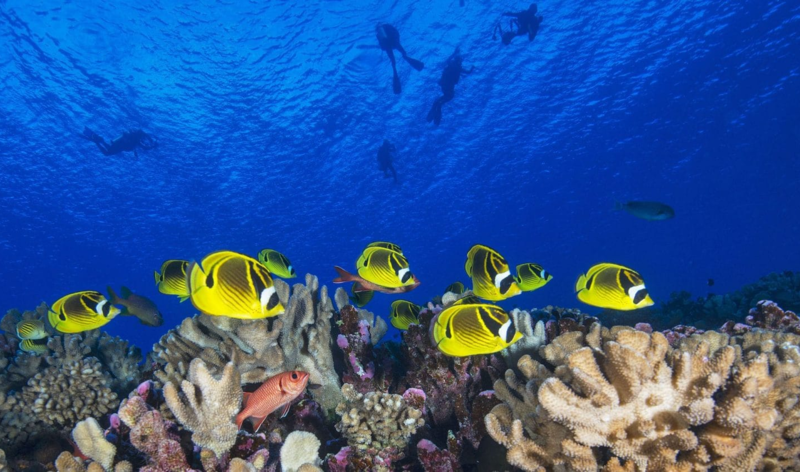
5 Steps to Build an Effective CSR Strategy
In today’s business landscape, Corporate Social Responsibility (CSR) has evolved from being a “nice-to-have” to ...

The 2022 World Ocean Day – which is celebrated annually on June 8 – aims at developing a global movement of people for the oceans in addition to mobilizing and uniting the population to work on a project for the sustainable management of the planet’s oceans.
The 2022 theme for the World Ocean Day is Revitalization: Collective Action for the Ocean: “Shedding light on the communities, ideas, and solutions that are working together to protect and revitalize the ocean and everything it sustains.”
The United Nations Division hosts the celebration for Ocean Affairs and the Law of the Sea, Office of Legal Affairs, and it is produced in partnership with nonprofit Oceanic Global.
The focus of this event will be safeguarding oceans, their ecosystems and biodiversity and building climate change resiliency.
The world needs to conserve its wonderful marine resources for future generations.
This year’s event is the first hybrid celebration in the history of World Ocean Day. This means it will be hosted in-person at the UN New York Headquarters and broadcast live around the globe.
The World Ocean Day was first proposed in 1992 during the United Nations Conference on Environment and Development, at the urging of Canadian. Then, it was essential to institute a day to raise awareness about the benefits humankind and the whole planet derived from the ocean.
The proposal was inspired by an event that took place that day, “OCEANS DAY AT GLOBAL FORUM – THE BLUE PLANET”. Its organizer was the Oceans Institute of Canada, supported by the Canadian Government, and the speaker who suggested it was Judith Swan, an internationally respected figure in the marine law sector and Executive Director of the Oceans Institute of Canada (OIC).
Many countries started celebrating it and, in 2008, the United Nations General Assembly officially recognized it and started celebrating, from 2009, on June 8th.
Marking the World Ocean Day is one of the best ways to engage with the community and spread the word about what can be done to solve the issues the world is facing.
Oceans contain 94% of all the planet’s wildlife. Nowadays, however, they are polluted and marine debris can harm animals causing suffocation, entanglement, laceration, infections and internal injuries. Furthermore, floating plastic and other items help transport invasive species, which lead to threats for marine ecosystems.
Oceans generate more than half the oxygen people breathe on land: tiny plants that live on the ocean’s surface produce roughly 50-80% of the planet’s oxygen through photosynthesis. The water is also, what people call a carbon sink, which means that it absorbs more CO2 than it releases.
Oceans regulate the climate on a global scale. Taking action to save the oceans is therefore of the utmost importance if people want to reduce the impact of climate change and build a more sustainable future.
Oceans pollution also harms human beings. Carcinogenic microplastics have entered the food chain, and toxic contaminants pose a serious health-hazard.
Marking the World Oceans Day is also meant to be a global reminder to people to contribute to plenty of activities that can be carried out and promoted locally to support ocean life.
These activities include reducing one’s use of plastic items, especially disposable ones. People can switch from single-use plastic bags to reusable ones, or stop using disposable plastic cups, plates; cutlery and bottles. Also, avoid useless plastic wrappings and buy food and cleaning products in bulk.
People can also reduce their carbon footprint. CO2 makes oceans more and more acidic, this contributing to the loss of corals and the destruction of marine ecosystems. People can reduce their footprint by riding a bike instead of driving, saving energy, or becoming vegan.
People can also take part in or organize local cleanups. They can volunteer to spend a day with friends actually cleaning up the ocean. It is hard work, but it is essential to do it to prevent debris from entering the waterways and getting all the way to the ocean.
It is essential to encourage people around the globe to contribute to ongoing efforts aiming at reducing CO2 emissions and curbing climate change which is posing grave threat to the planet.
اترك تعليقا